My second book came out during the second year of lockdown. The Conversos is mainly set in Antwerp and there was no possibility of visiting the city in 2021 when all travel was forbidden. Several reviewers asked if I’d been to Antwerp for research, to the point I felt quite defensive. As it happened I had been there in 2018 but had no notion then of writing a book set in what was, albeit briefly in the 1500s, the most powerful city in the Western World. So I did have a general sense of the place, but not much more.
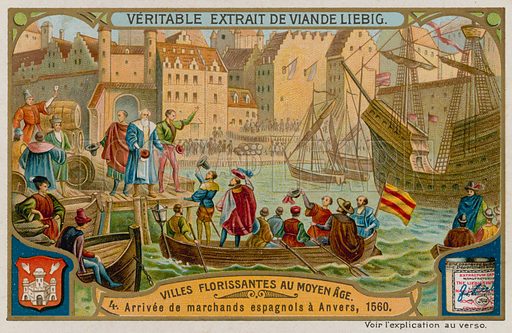
Most cities have, of course, changed dramatically since the sixteenth century and much of what a visitor or researcher can explore are museums, ruins and the occasional castle or house which is still habitable. The traffic, the clean streets, the smells, the sheer number of people, the building restrictions – for instance we’re no longer permitted to keep adding more stories to the top of our houses so they lean out over the street until they’re nearly touching the houses opposite – mean often a more accurate picture of life in the period can be culled from books, paintings and maps of the era than I would ever get visiting the place in the current day.
Here’s a drawing of Geneva from 1559, which I referred to constantly when writing the third in series The Apostates which is set in 1549-53. Calvinist Geneva was an austere place: dancing and plays were forbidden; murals whitewashed over; the manufacture of playing cards forbidden; brothels shut down. Yet before Calvin it was also known as the dirtiest city in Europe and he insisted girls should have the opportunity to attend school too. All this I learned from research and, having been in Switzerland although not Geneva, considered it sufficient to achieve a sense of place.
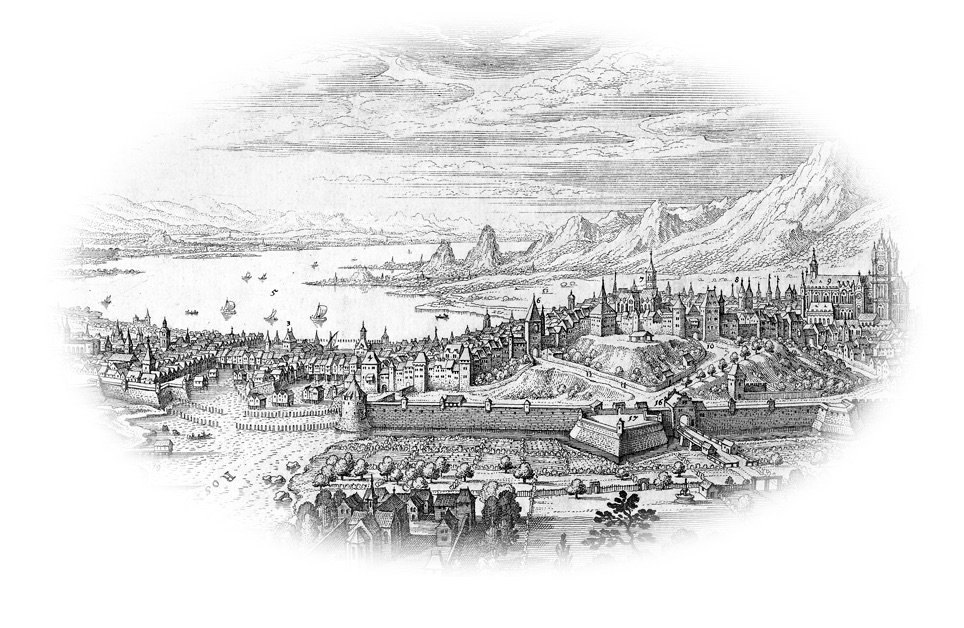
The Apostates is set mostly in Venice so I had the perfect excuse to go there, just as the world was opening up again, masks on and vaccination certificates in hand, and it wasn’t as crazy busy as usual..
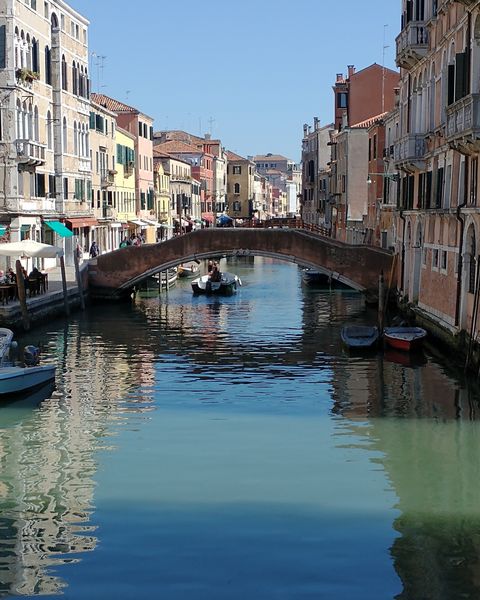
Visiting the ghetto (the word originated in Venice and referred to the area where Jews were required to live) and especially walking through the same gateway which was locked each night to keep them in, was atmospheric. Seeing the tall houses with windows facing inwards and peering in to see where rooms had been spilt horizontally to cram in another family was fascinating.
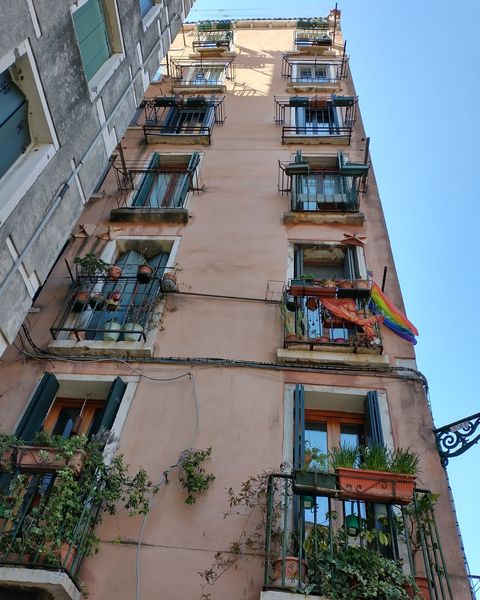
But I’d already researched this before I ever set foot in Venice.
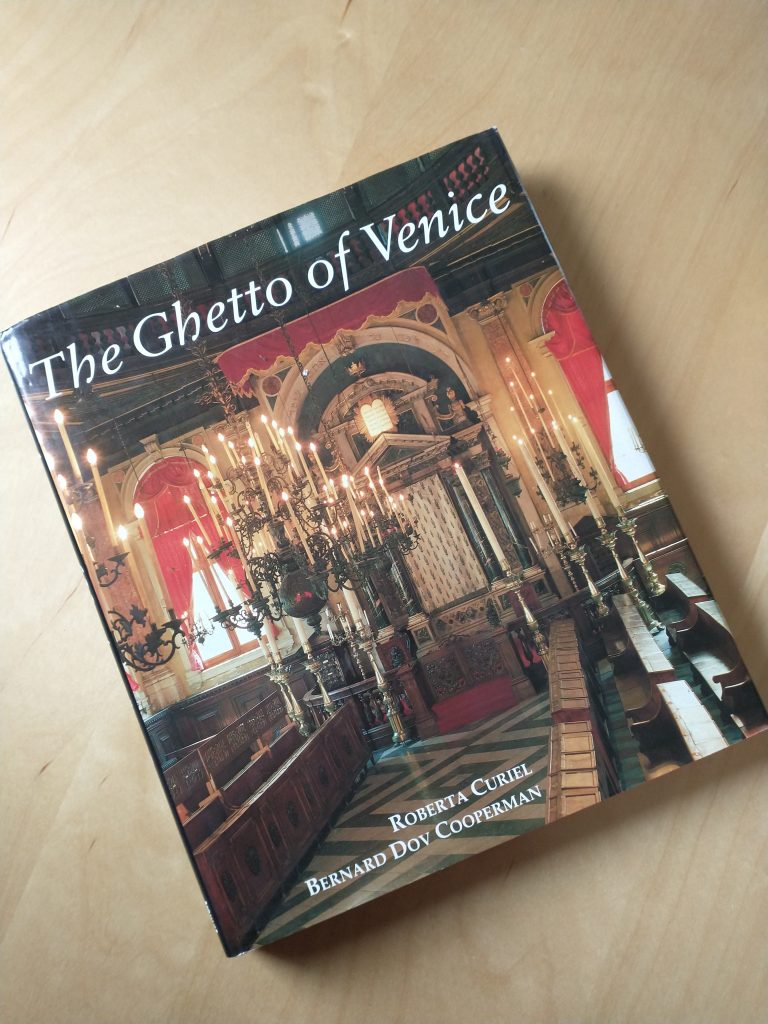
So, did I really need to go there?
Venice, a city without cars, has not changed as dramatically as most places have in the past five hundred years and wouldn’t have looked so very different to my characters.
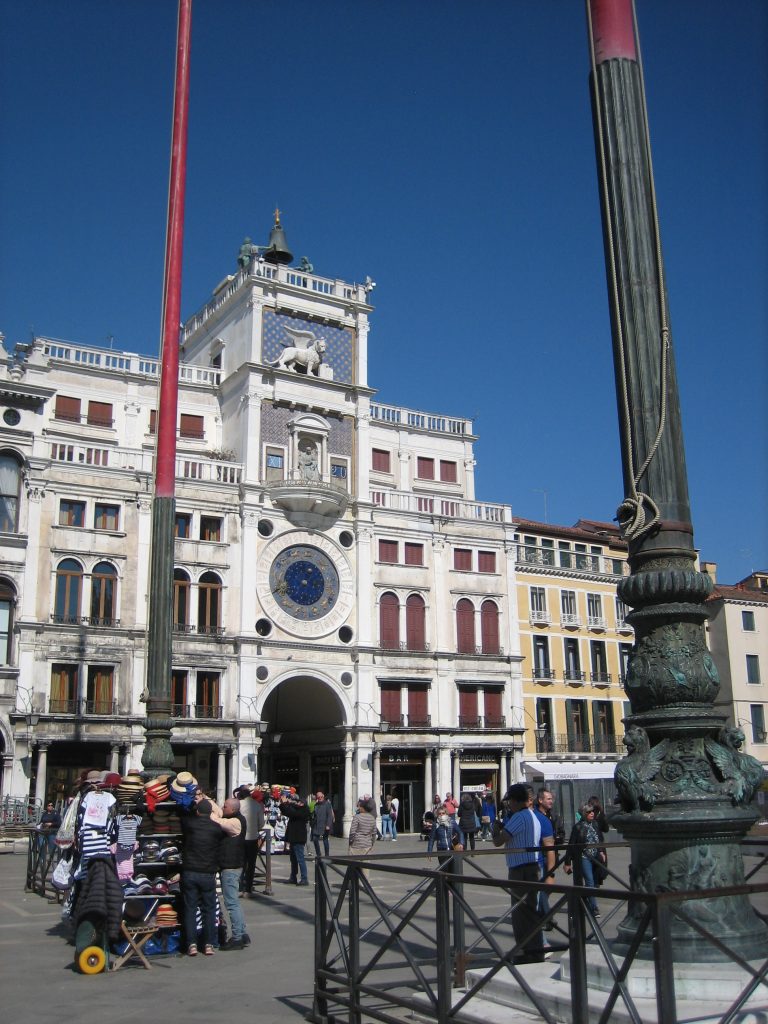
Seeing the Torre dell’Orologio, the amazing clock tower in St Mark’s Square gave me an idea for a plot point – I hadn’t really registered up until then that astrology and the movement of the stars was found on clock faces of the era and much studied in the Renaissance. So yes, it was useful to visit.
But sometimes too much familiarity with a place can get in the way. For instance my first book, The Castilians, is the story of the siege of St Andrews Castle, Scotland, in 1546. There are a number of buildings in St Andrews still standing from that era, albeit many in ruins.
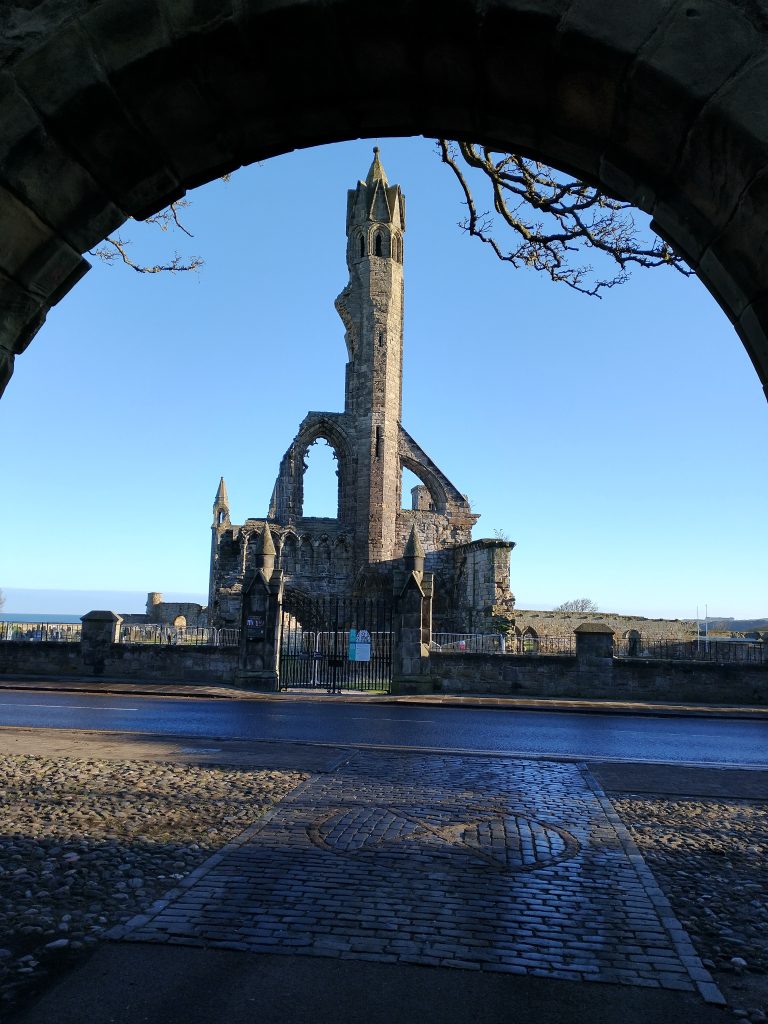
I grew up in St Andrews and feel a visceral connection to its streets and of course I knew all about its weather – the haars that blanket the town in chill mists; the times when the east wind blows straight from Siberia; waves breaking onto the long stretch of the West Sands on a sparkling day.
It was easy to portray the setting, almost too easy with a place I was so familiar with for of course it had changed significantly in nearly five hundred years. For instance the harbour in 1546 had quays built from wood, which were actually longer than the current piers – and these were built from the stone pillaged from the cathedral and castle, destroyed during the Scottish Reformation. Doing the research was important!
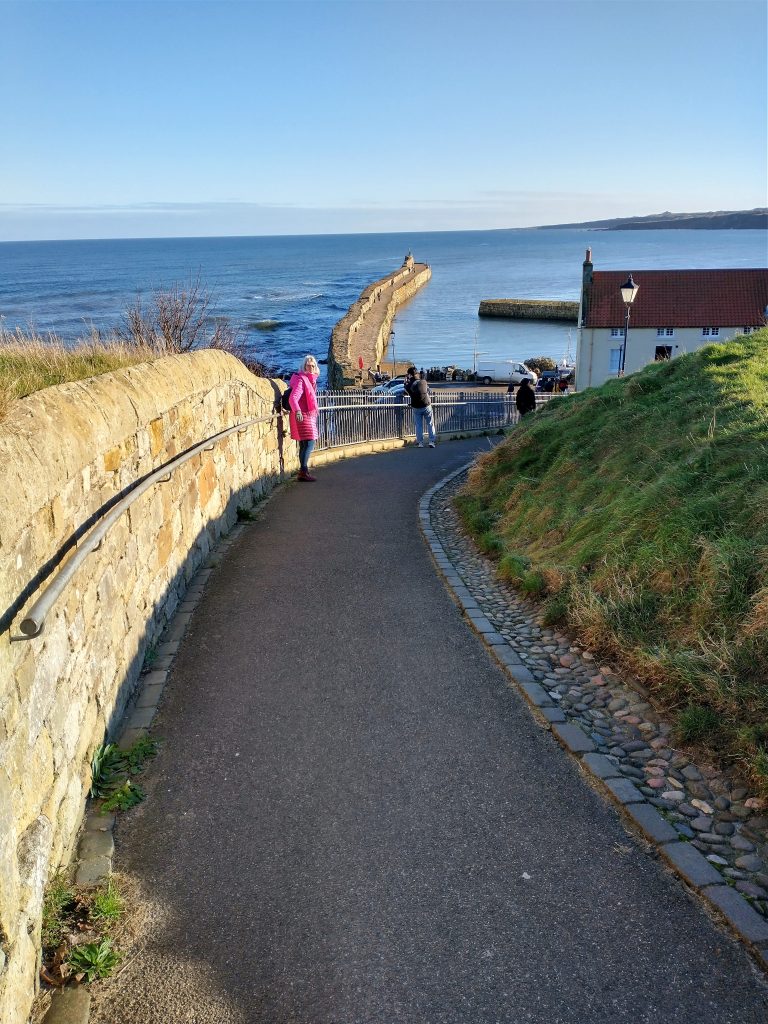
Some settings are impossible to experience, thankfully. I found a heart wrenching memoir about life as a galley slave by a French Protestant, written in 1713 but somehow I doubted things would have changed much from 1547 when my character is enslaved on one. As one lovely Goodreads reviewer wrote of The Conversos, ‘Grand characters and thrilling story. The place descriptions are unforgettable, and I will never forget the horrors of being a galley slave.’
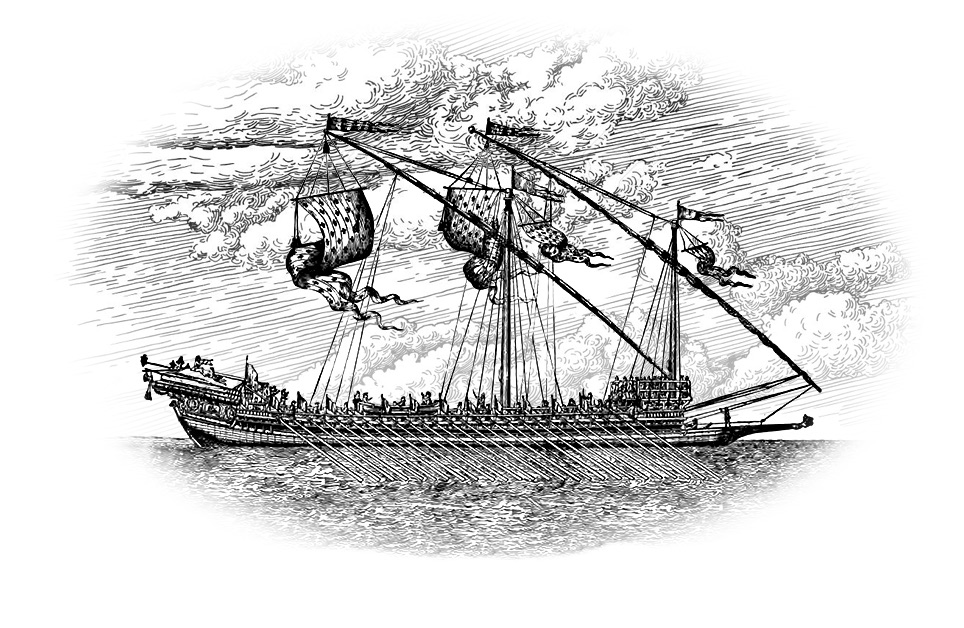
Each place I’m writing about is very different and conveying the richness of setting and the world inhabited then certainly has me stretched. Three of my main characters are Scots and I could sense how stunned they’d be to come from the relatively small confines of St Andrews, albeit one of the richest cities in Scotland of the time to Antwerp, which had a population of around eighty thousand, then on to austere Protestant Geneva and from there to the opulence of Venice.
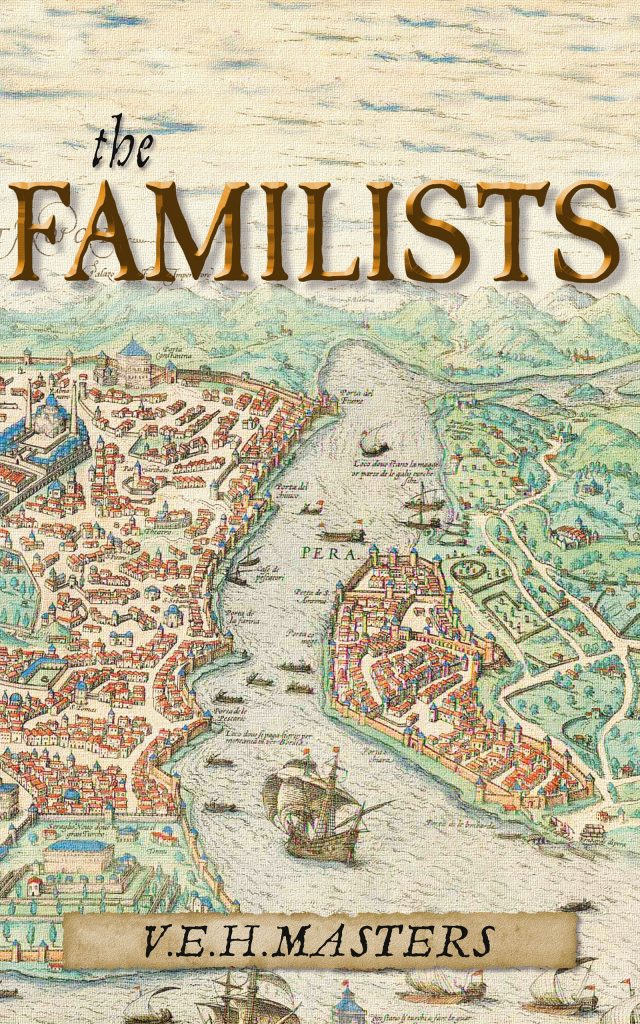
My current work in progress The Familists is primarily set in Constantinople and a trip to Istanbul is already planned. I’ve done loads of research but it’s not enough. This setting is just too unfamiliar to write about without a visit!

‘A series which never fails to get better and always leaves me wanting more.’ Esther Mendelssohn
To purchase in UK click here
To purchase in USA click here
To purchase in Canada click here
To purchase in Australia click here

Reading the Pittenweemers now ! Loved your series, I have learned so much!